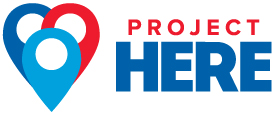For Parents & Caregivers
Project Here is dedicated to keeping young people safe by raising awareness about the risks and consequences of substance use, de-stigmatizing the disease of addiction, and promoting healthy decision-making. To do that, we are making educational and prevention resources available to every public middle school in Massachusetts.
Check with your child’s middle school to see if the school is registered for Project Here. If not, please encourage them to do so. Schools can register here.
How will Project Here help my child in the classroom?
The Project Here Online Toolkit is filled with lesson plans and other resources meant to complement any prevention curricula already underway in schools. Resources on a range of topics — from coping skills to vaping to the adolescent brain — will help your child’s teachers address the issues that are most relevant for their students and build life skills that children need to be healthy now and in the future. Remember, a school must register in order to have free access to this resource.
Project Here Games is an online app to reach middle school students where they are: on their phones, tablets, and computers. Project Here Games includes activities, quizzes, and mini-games for students to practice important social emotional learning skills, such as coping and communication. Project Here Games also teaches students information about substances, from nicotine to marijuana to opioids, in an interactive way. Students can play Project Here Games in school or at home on their own.
As a parent, what do I need to know about substance use and prevention?
According to data from the 2019 Massachusetts Youth Risk Behavior Survey and Massachusetts Youth Health Survey, a vast majority of middle school students (6th – 8th graders) reported never having used alcohol, tobacco, marijuana, or other substances.
However, students often become exposed to and curious about substances, and research tells us that early substance misuse, including alcohol misuse, is associated with a greater likelihood of developing a substance use disorder later in life.
Because most children at this age have not yet used substances, middle school is an ideal time to implement prevention efforts to reinforce healthy decision-making and help keep young people safe.
How do I talk to my kids about the risks and consequences of substance use? How can I help reinforce healthy decision-making?
“Talking to Your Middle-School Aged Child about Alcohol, Tobacco, and Other Drugs” is a brochure published by the Massachusetts Department of Public Health with information about how to have a conversation with you child about substances and protect your children from substance use.
Information and tips to talk to your child about e-cigarettes and vaping is available on the U.S. Department of Health and Human Services’ “Know the Risks: E-Cigarettes & Young People” website.
SAMSHA: Talk. They Hear You is an underage drinking prevention campaign to help parents and caregivers talk to their children about the dangers of alcohol.
Partnership to End Addiction: Marijuana Talk Kit is a resource to that support parents in talking to their children about marijuana.
“Talk with Your Teen About E-cigarettes: A Tip Sheet for Parents” is a resource with tips about how to start a conversation with young people about electronic cigarettes.
You can also learn more by visiting the Massachusetts Department of Public Health’s website: Protect Your Kids from Prescription Drug Misuse.
What are some tell-tale signs of the disease of addiction?
- Changes in mood
- Becoming more withdrawn
- Changes in grades
- Lack of interest in activities that used to be exciting to them
- Problems at school or work
- Changes in friends, hanging out with a different crowd
- Being unable to keep a commitment to stay away from drugs
- Suffering withdrawal symptoms, including shaking, seizures, anger, personality changes
- Denying that there is an issue and becoming defensive
- Hiding drug use and using substances in private
For more information about the disease of addiction and how to talk to your child if you are concerned that they may be using substances or addicted, read Boston Medical Center’s “Adolescent Addiction: What Every Parent Should Know.”
Additional Resources for Parents & Caregivers:
If you or a loved one may need help with substance use or the disease of addiction, here are some available resources:
- Preparing Your Young Children for a Healthy, Drug-Free Future (Bureau of Substance Addiction Services of the Massachusetts Department of Public Health)
- Massachusetts Substance Use Helpline: 1-800-327-5050 (Bureau of Substance Addiction Services of the Massachusetts Department of Public Health). The only statewide, public resource for finding substance use treatment and recovery services in Massachusetts. This is a one-stop source for learning about addiction and finding services that are right for each person. Residents can find information, and treatment and recovery support services online via the link above, by phone or by online chat.
- Centers for Disease Control’s Promoting Parent Engagement: Includes information for school districts and administrators on how to increase parent engagement. Focuses on the importance of parent engagement, factors to increase parent engagement in school health, strategies to increase parent engagement, and additional resources.
- Substance Use Disorder/Addiction Resources for Youth and Families

